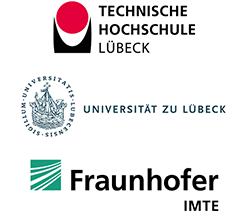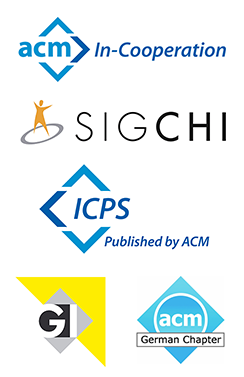

Björn Eskofier
iWOAR Keynote Speaker
»Artificial Intelligence (AI) and Machine Learning (ML) methods are currently a “hot topic” in medicine. For instance, searching Pubmed publications for the keywords “Artificial Intelligence” or “Machine Learning” resulted in approximately 400 hits in 2000, then around 2200 in 2010, and then more than 21500 in 2020.
The driver of AI or ML method employment, in medicine as well as in other domains, is the availability of digital data. Despite the recent rise in publication numbers, the potential of delivering more objective, precise, and personalized medical diagnosis and care decisions is by far not reached. The reason is that the current healthcare data infrastructure nationally as well as internationally lacks interoperability and interfaces on several different levels (individual, institutional, device, and provider level, just to name a few). The health data infrastructure for future healthcare needs to address this, and one favored solution are “personal health dataspaces”, which put individuals into the center of data aggregation (figure), and creates new opportunities for AI and ML solutions.«
Bjoern M. Eskofier heads the Machine Learning and Data Analytics (MaD) Lab at the Friedrich-Alexander-University Erlangen-Nuernberg (FAU). He is also the founding head of FAU’s Department Artificial Intelligence in Biomedical Engineering (AIBE), spokesperson of the German Ministry of Economic Affairs and Climate Action GAIA-X usecase project “TEAM-X” and co- spokesperson of the German Research Foundation collaborative research center “EmpkinS” (SFB 1483). Dr. Eskofier studied Electrical Engineering at the FAU and graduated in 2006. He then studied under the supervision of Prof. Dr. Benno Nigg at the University of Calgary (Canada). He authored more than 300 peer reviewed articles, submitted 7 patent applications, started three spinoff startup companies, and is in a supporting role for further startups. He won several medical-technical research awards, including the “Curious Minds” award in “Life Sciences” by Manager Magazin and Merck. In 2016, he was a visiting professor at Harvard Medical School (February-March), and in 2018, he was a visiting professor at MIT Media Lab (March-August).
read more ↬
The driver of AI or ML method employment, in medicine as well as in other domains, is the availability of digital data. Despite the recent rise in publication numbers, the potential of delivering more objective, precise, and personalized medical diagnosis and care decisions is by far not reached. The reason is that the current healthcare data infrastructure nationally as well as internationally lacks interoperability and interfaces on several different levels (individual, institutional, device, and provider level, just to name a few). The health data infrastructure for future healthcare needs to address this, and one favored solution are “personal health dataspaces”, which put individuals into the center of data aggregation (figure), and creates new opportunities for AI and ML solutions.«
Bjoern M. Eskofier heads the Machine Learning and Data Analytics (MaD) Lab at the Friedrich-Alexander-University Erlangen-Nuernberg (FAU). He is also the founding head of FAU’s Department Artificial Intelligence in Biomedical Engineering (AIBE), spokesperson of the German Ministry of Economic Affairs and Climate Action GAIA-X usecase project “TEAM-X” and co- spokesperson of the German Research Foundation collaborative research center “EmpkinS” (SFB 1483). Dr. Eskofier studied Electrical Engineering at the FAU and graduated in 2006. He then studied under the supervision of Prof. Dr. Benno Nigg at the University of Calgary (Canada). He authored more than 300 peer reviewed articles, submitted 7 patent applications, started three spinoff startup companies, and is in a supporting role for further startups. He won several medical-technical research awards, including the “Curious Minds” award in “Life Sciences” by Manager Magazin and Merck. In 2016, he was a visiting professor at Harvard Medical School (February-March), and in 2018, he was a visiting professor at MIT Media Lab (March-August).
read more ↬


